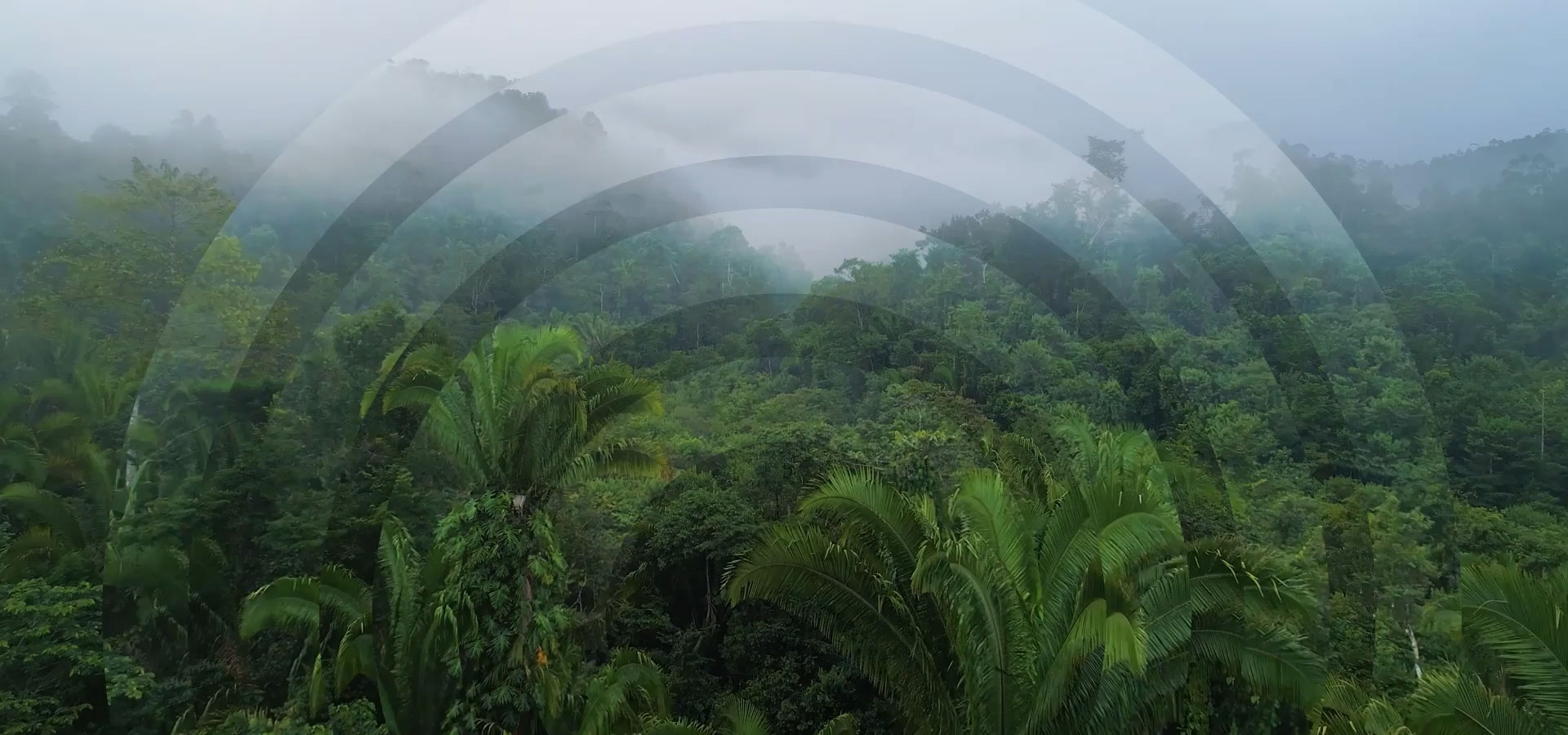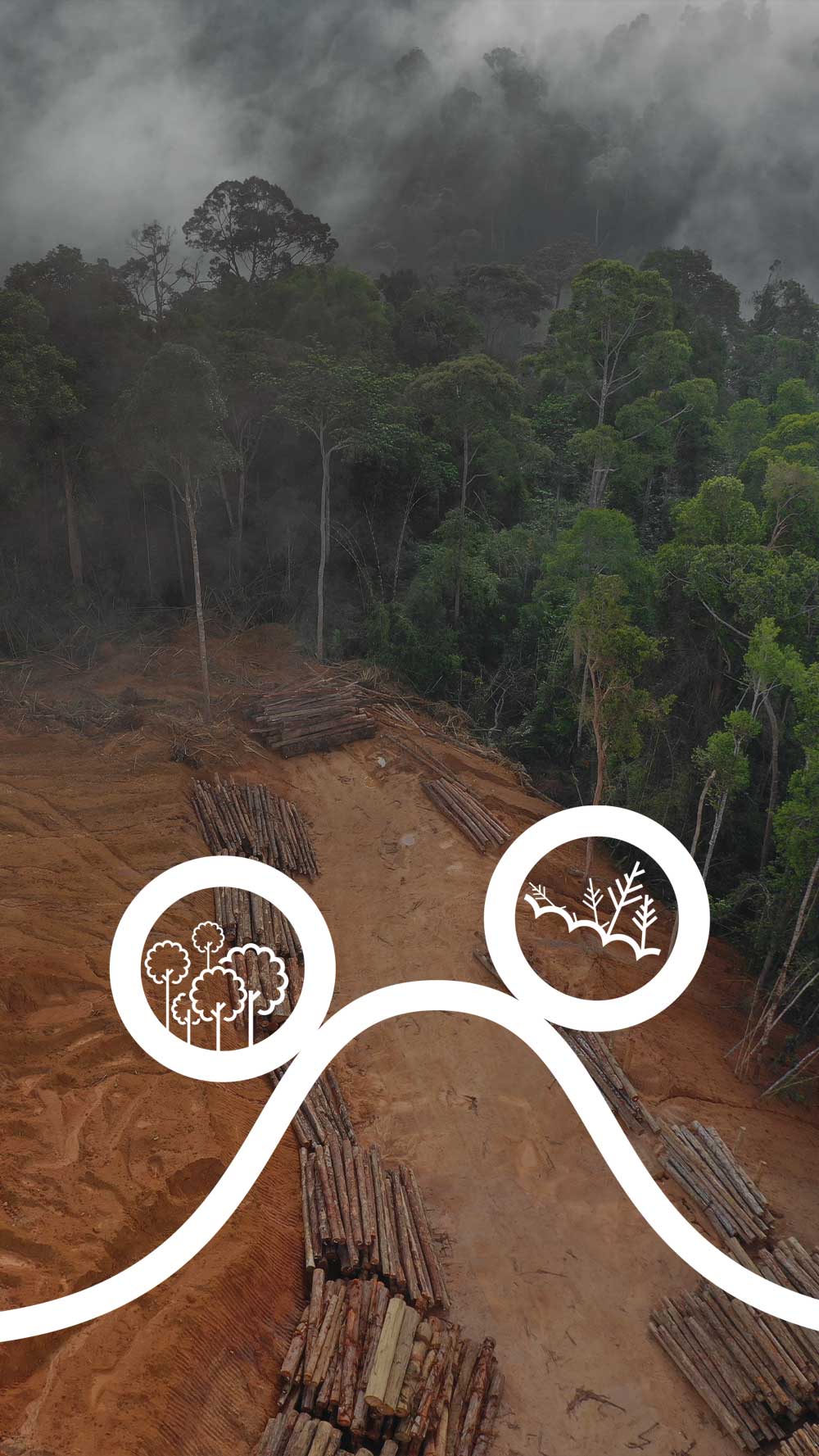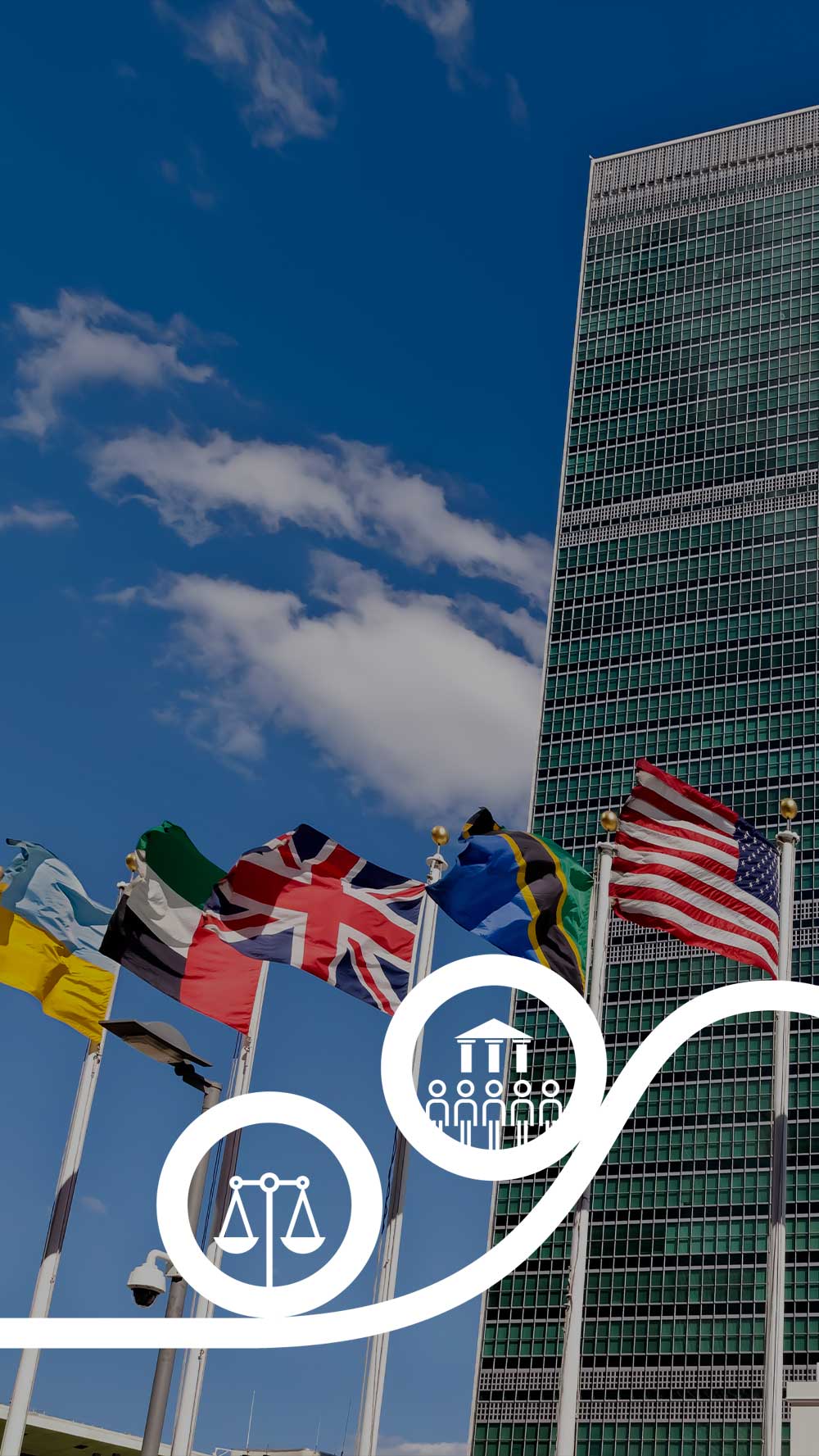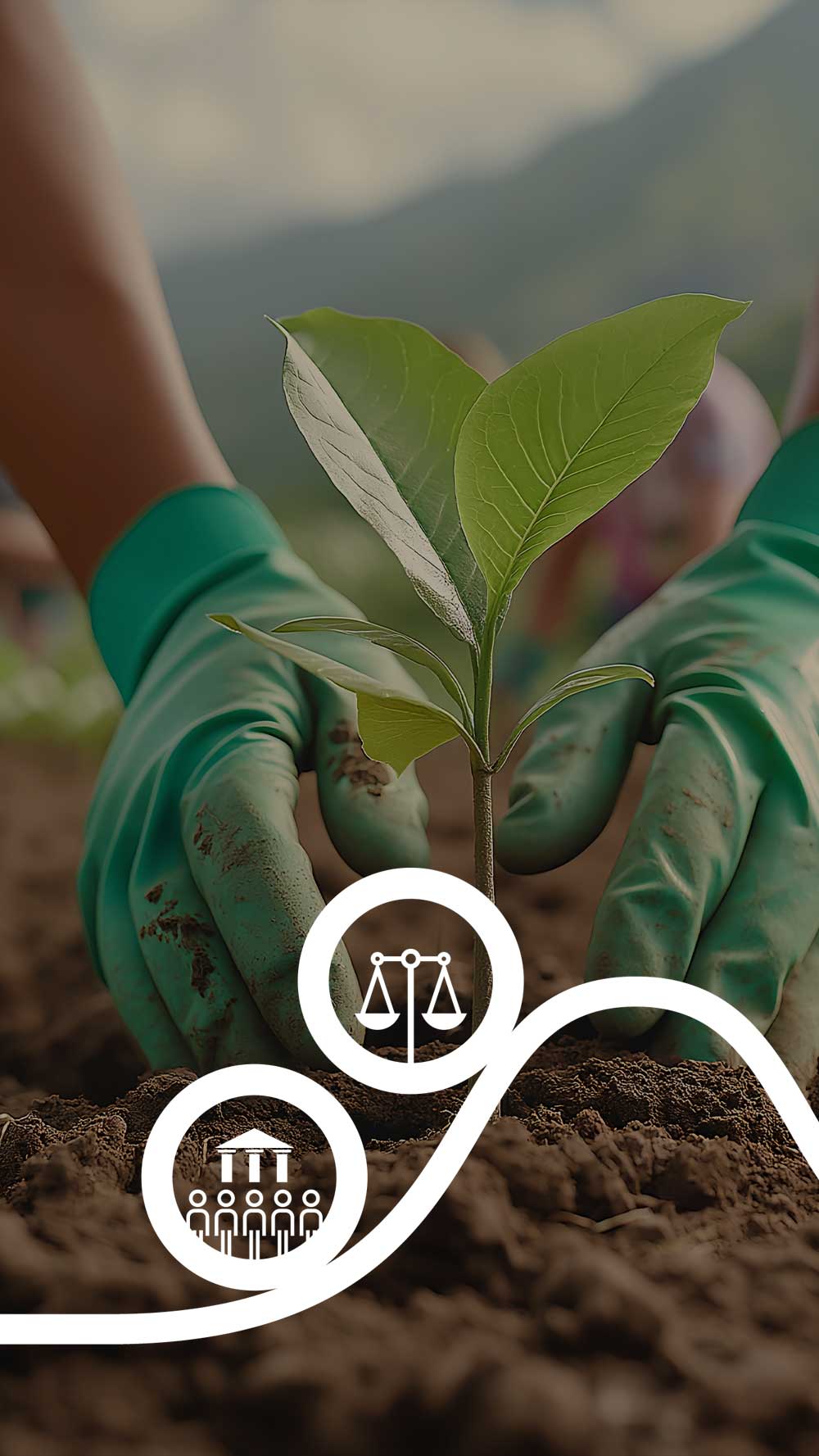Global Tipping Points
Harmful tipping points in the natural world threaten humanity by disrupting life support systems and societal stability. The effects of tipping points will be transmitted and amplified throughout our globalised world. To mitigate these risks, we should focus on positive tipping points—opportunities where beneficial changes become self-sustaining. History shows rapid societal shifts are possible.
The Global Tipping Points
Report 2025
As COP30 approaches, we’ve synthesised the latest research on tipping points – both positive and negative – into the Global Tipping Points Report 2025. A total of 160 authors, from 23 countries and 87 institutions contributed. Together, we’ve consolidated knowledge on how to govern Earth system tipping points, the risks they pose, and the opportunities presented by understanding and acting on positive tipping points.
12. Key Messages
Governance
We urgently need new types of governance to cope with the threat posed by Earth system tipping points.
Earth System Tipping Points
Earth system tipping points pose profound risks to national security, food security, health and wellbeing.
Positive tipping points
We need to identify and trigger positive tipping points to accelerate to net zero.
Positive Tipping Points for nature
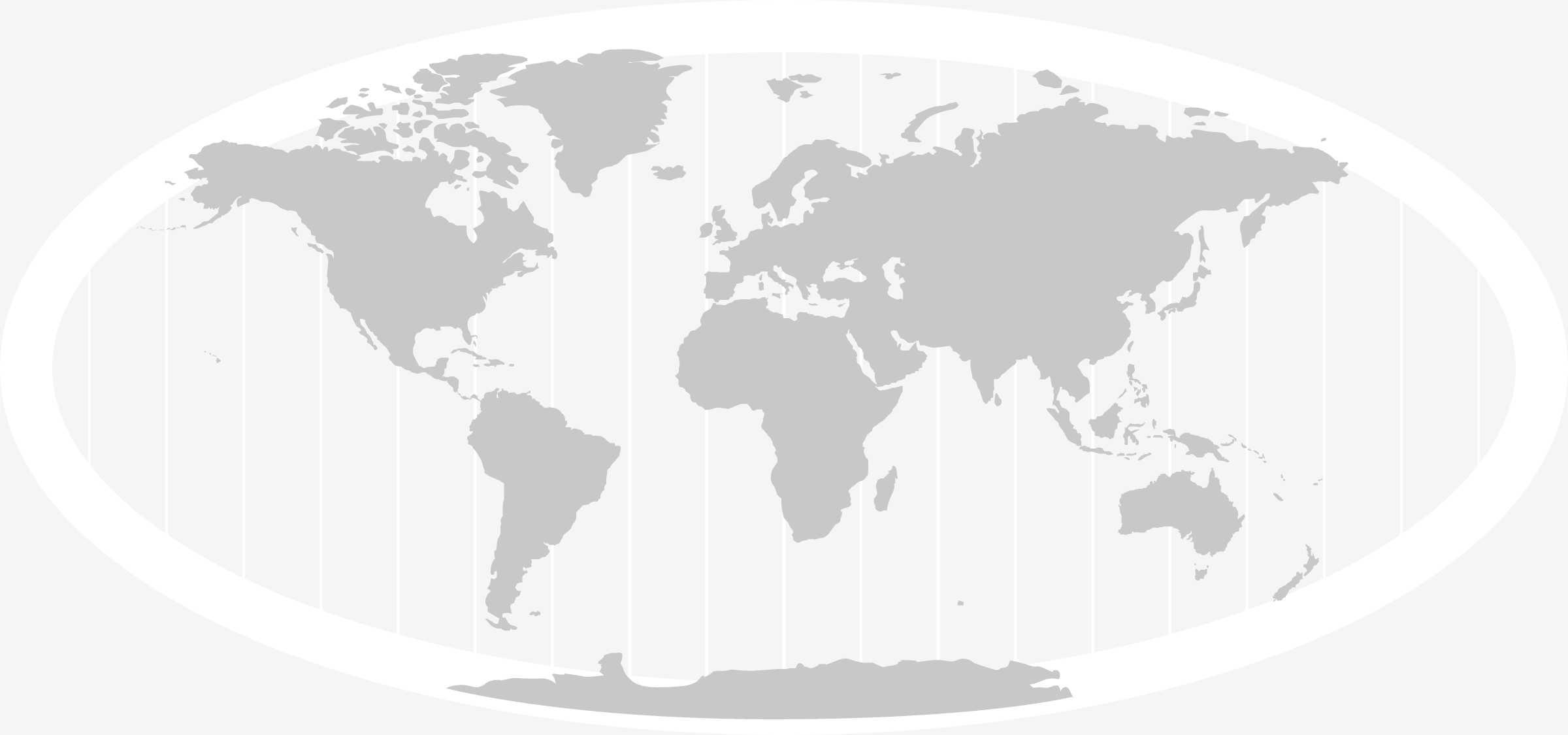
-
Pacific kelp forests
The recovery and reintroduction of sea otter populations off the North Pacific coast of the US and Canada suppressed sea urchin populations and allowed kelp forests to abruptly recover. -
Yellowstone National Park
Reintroducing wolves to Yellowstone National Park in 1995-6 suppressed elk and deer populations triggering abrupt vegetation recovery and boosting populations of scavengers, songbirds, bison, and beaver. -
Seagrass and Mussel Bed Restoration
Clumped reintroduction of seagrasses and mussels can positively tip recovery of tidal ecosystems. -
UK, Netherlands Shallow Lake Recovery
Efforts starting in the Norfolk Broads and the Netherlands have shown that reducing phosphorus loading can reverse eutrophication of shallow lakes and positively tip them into a clear water state. -
North Sea Fish Stocks
Enforcement of a Maximum Sustainable Yield (MSY) has already positively tipped recovery of plaice and hake stocks in the North Sea. -
Cooperative Governance of Water Resources, Rajasthan
Societies can positively tip into cooperating to recover common pool resources. For example, reinstating the traditional practice of maintaining artificial reservoirs that capture the monsoon rains has recovered depleted groundwater resources in drier parts of India. The rains infiltrate to recharge groundwater that in turn support natural vegetation, agriculture and the community. Cooperative village level governance of water resources was key to this. -
Marine Reserves, Philippines and Kenya
For coastal fisheries, marine protected areas (MPAs) can positively tip fish stock recovery, by providing safe spawning areas and ‘spillover’ of fish into the surrounding waters. Successful MPAs require careful engagement with fishing communities. -
Smallholder agroforestry, East Africa and India
Benefits to smallholder farmers, including carbon payments, helping alleviate household credit constraints, and economically empowering women, are key to the rapid spread of the International and small-group tree planting initiative (TIST) in East Africa and India. Farm-scale actions in turn green the surrounding landscape. -
Community-Based Forest Conservation in Tanzania
Benefits to local people are critical to achieving positive tipping of diffusion for conservation and agroforestry initiatives. In Tanzania, local people determine the relative scaling up success of different community-based forest conservation initiatives. -
Locally Managed Marine Areas
Community management is key to positively tipping the spread of sustainable resource management. It governs the spread of locally managed marine (protected) areas (LMMAs) across Pacific islands.
Find out more about Positive Tipping Points
Parts of the Earth system identified as featuring tipping points
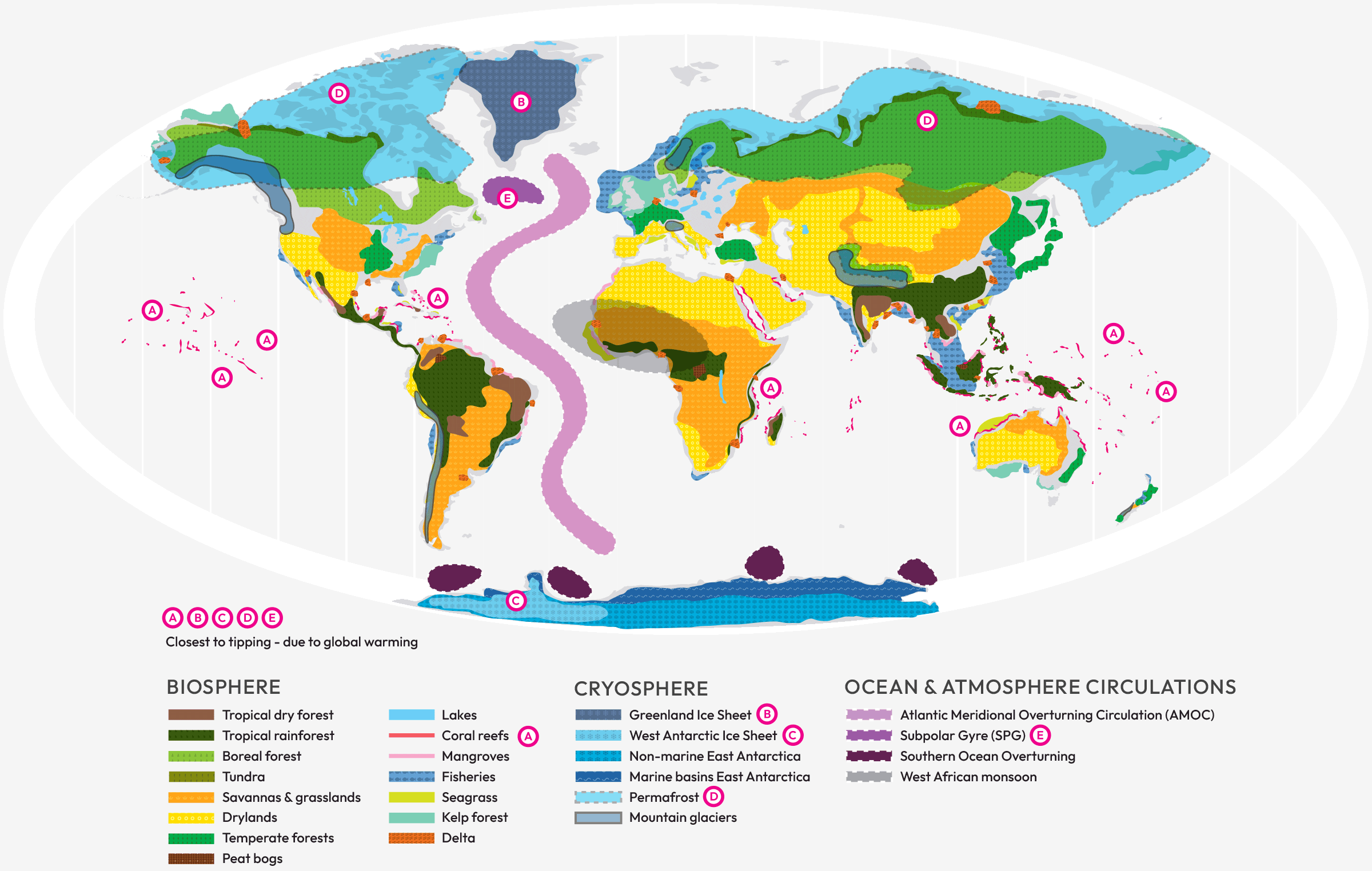
Downloads
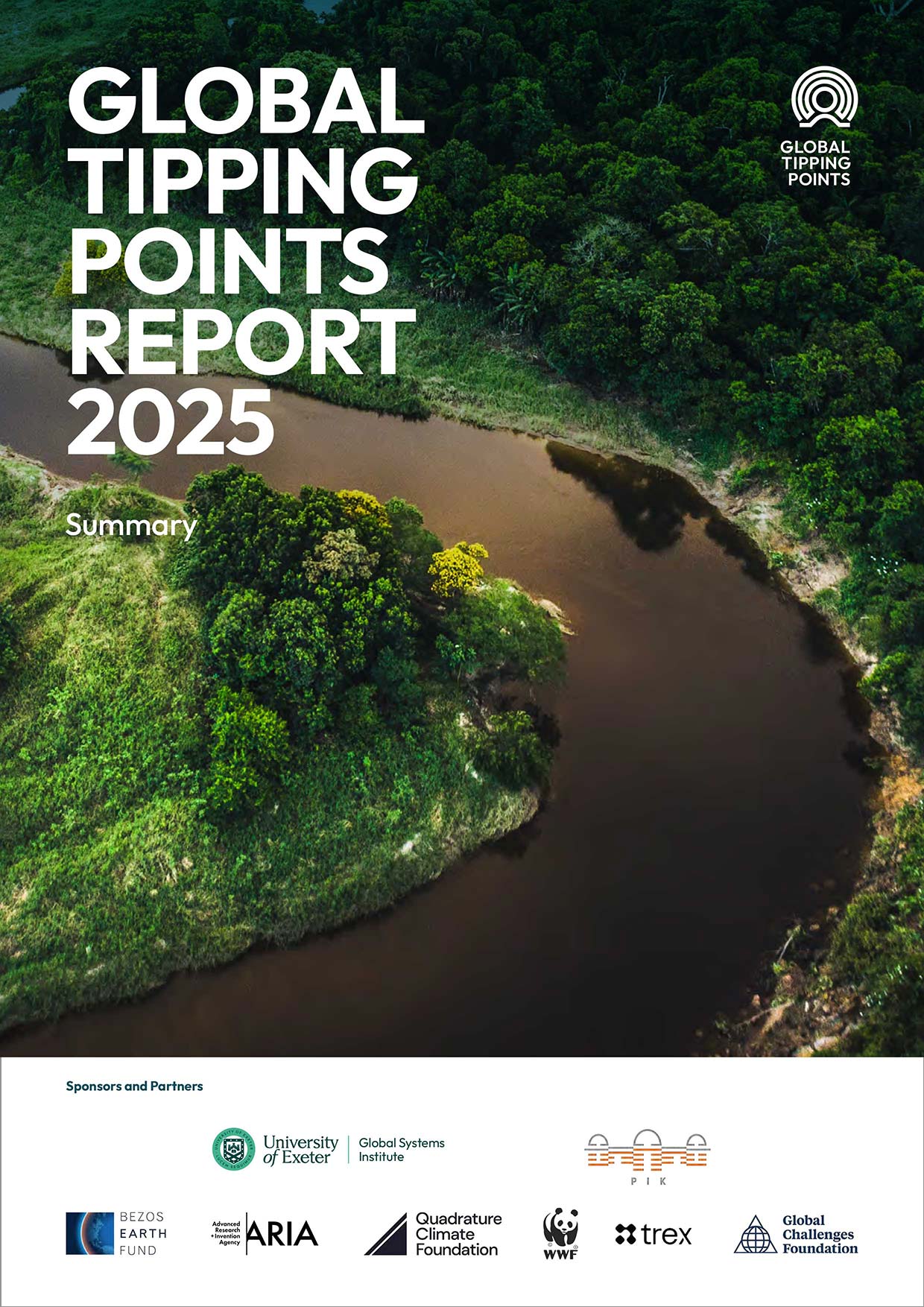
Download the Global Tipping Points Report 2025
Summary for Policymakers
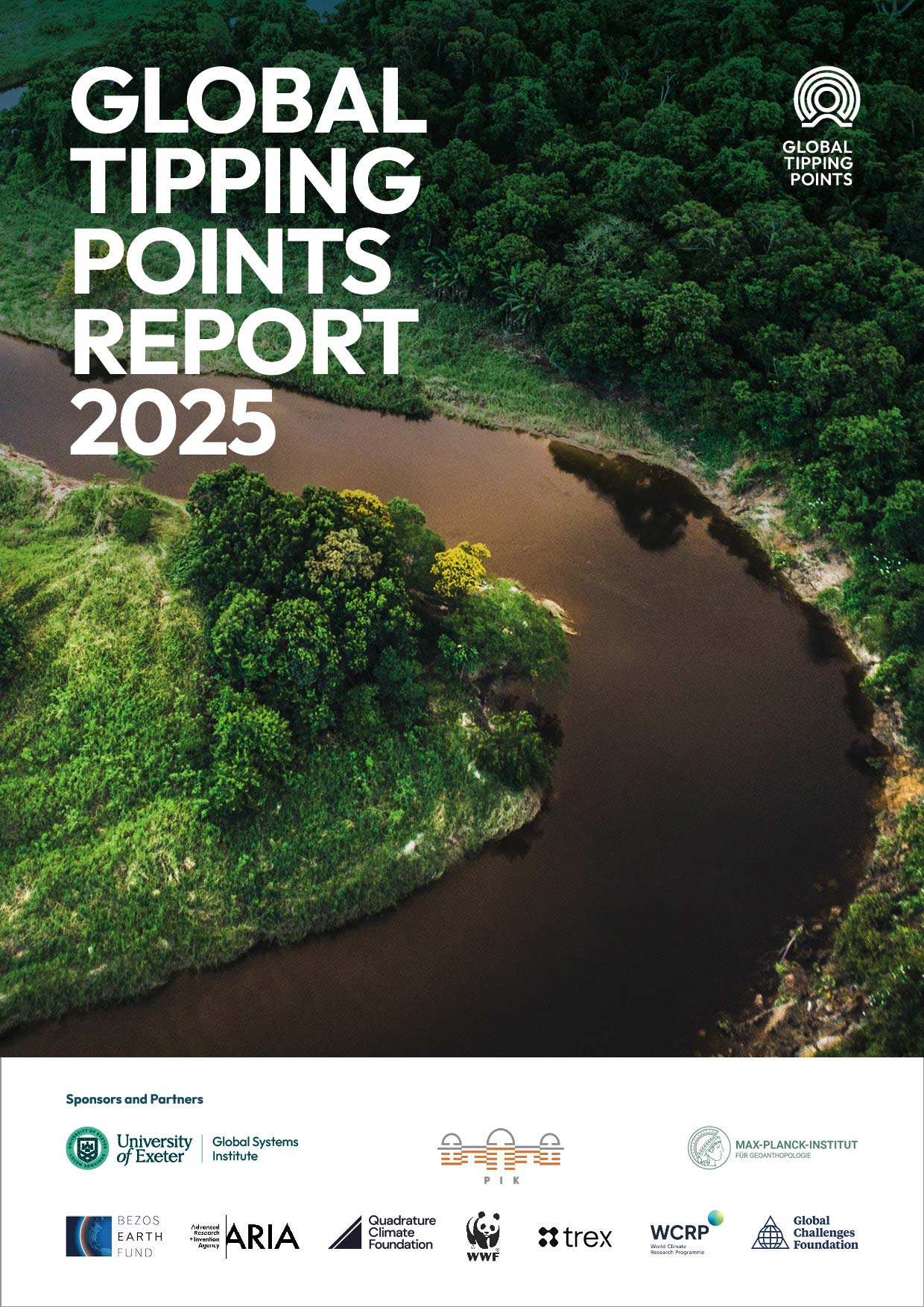
Download the Global Tipping Points Report 2025
Full Report
- Full Report – …MB
- SUMMARY REPORT – 8.9MB
- Introduction – …MB
- Section 1 – …MB
- Section 2– …MB
- Section 3 – …MB
- Section 4 – …MB
- Case Study: Amazon …MB
What the Experts Say
Dr Courtney Howard
Emergency Physician, Canadian subarctic, Chair, Global Climate & Health Alliance
David Obura
CORDIO, East Africa & IPBES Chair
Túlio Andrade
COP30 Chief Strategy and Alignment Officer, COP30 Presidency
Tanya Steele
Chief Executive, World Wildlife Fund UK


positive tipping points unleash self-amplifying change
Key Concepts
Sponsors and Partners





